Calls for Ukraine
Calls for Europe
Calls for USA
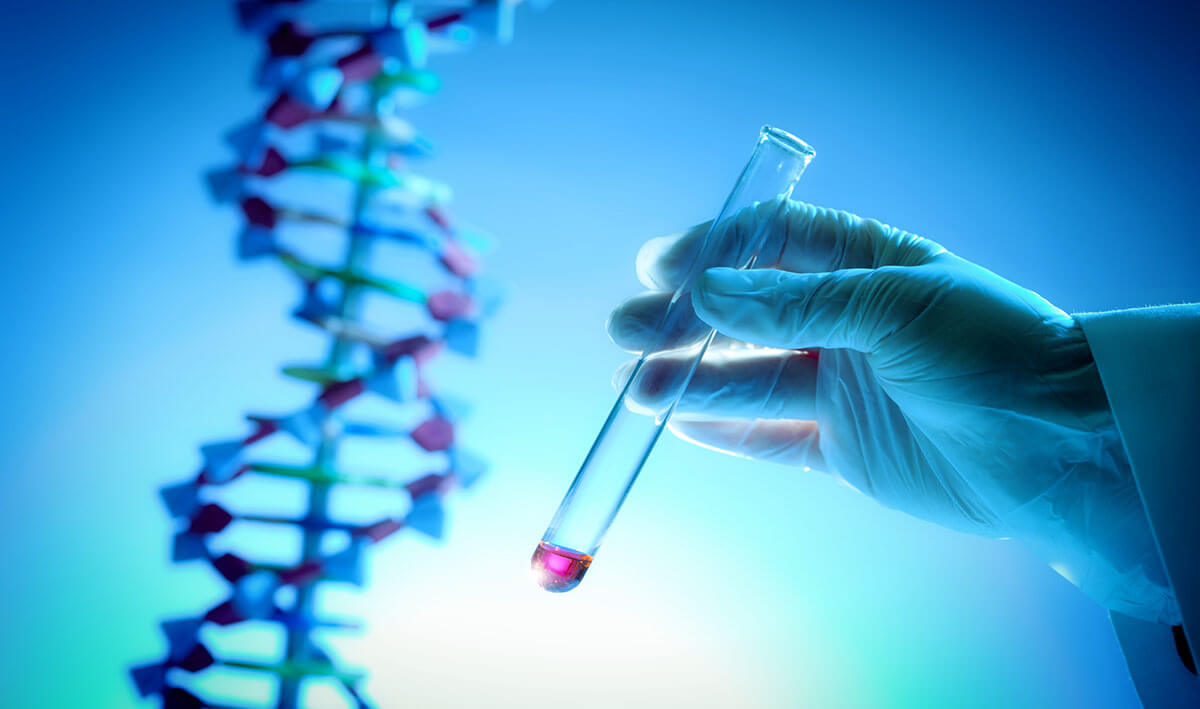
Correct diagnosis is the first and very important step in the treatment of any disease. If we talk about malignant pathologies, a well-chosen examination can literally save a life.
Modern diagnostics of oncological diseases includes a complex of the latest medical technologies and methods, which makes it possible to obtain more complete information about the development of malignant tumors and to treat them with higher efficiency. Today there are diagnostic techniques that accurately determine the type of cancer, its stage, size, characteristic mutations in genes and many other characteristics. This gives doctors the opportunity to use a personalized approach to treatment, choose the most effective strategy, monitor the effectiveness of therapy, and promptly detect relapse.
Doctors use various complementary groups of tests when diagnosing oncology. Of particular importance for making an accurate diagnosis are innovative methods for diagnosing cancer, which provide doctors with the most important and accurate information, help to find out unique data about the tumor and get a complete picture of the disease. This, in turn, allows oknologists to apply an individual approach to the treatment of each patient and significantly increase the effectiveness of therapy.
The most popular and accurate methods for diagnosing cancer include:
Molecular genetic testing is especially worth noting. This laboratory method can be considered one of the newest, most promising and significant examination methods for cancer.
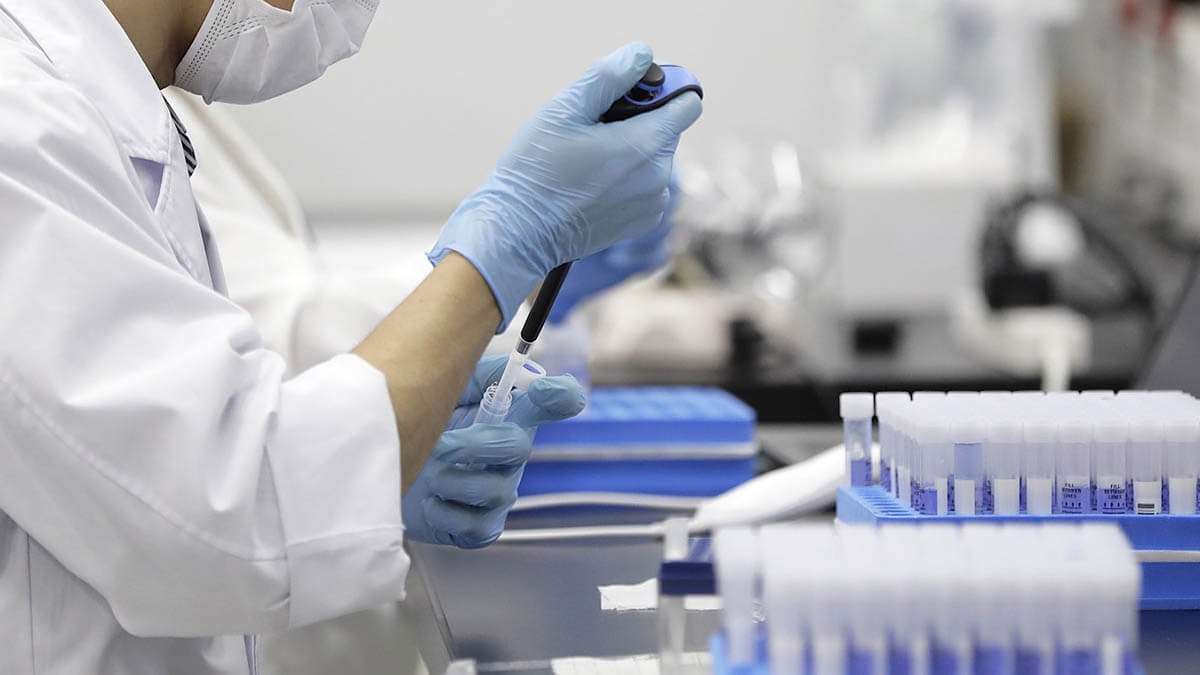
Molecular genetic testing for cancer involves a series of specific laboratory tests that determine the exact characteristics of a specific tumor. These are very important examinations, with the help of which it is possible to personalize treatment for each specific case and select the most effective drugs on an individual basis, and this in turn significantly improves prognosis.
Recent studies have shown that a major role in the development of various types of neoplasms belongs to mutations, which can be either hereditary and transmitted from generation to generation, or acquired. These gene mutations are important clinical biomarkers. Determining them can reveal a person’s predisposition to developing a certain type of cancer or show what type an existing tumor is. For example, somatic mutations in the BRCA genes are found in approximately 20% of ovarian cancers.
The presence of such mutations can be determined by PCR tests (this type of test is usually done for certain mutations) and NGS diagnostics (next generation sequencing). Variant analysis using NGS is now considered the most effective method for identifying genetic changes. Laboratory research of this kind opens up broader opportunities for the treatment of cancer. Knowing specific mutations, doctors can select targeted drugs, the targets of which will be cells of a specific tumor, and this will significantly increase the effectiveness of treatment.
Molecular genetic testing can be used for many malignant diseases. This type of examination, for example, is recommended for accurate diagnosis and selection of subsequent treatment tactics:
Genetic PCR tests and NGS diagnostics can be done in specialized laboratories, where there is the equipment necessary for such studies and the appropriate specialists work. Today there are such laboratories in different countries of the world. The MedTour platform cooperates with medical institutions of this type and will help you find a laboratory in the country in which you want to undergo examination.
In Ukraine, you can do molecular genetic testing for cancer in the LifeCode laboratory. This is a full-cycle laboratory for oncological diagnostics. Here you will have the opportunity to do full molecular profiling and create a “tumor profile” or undergo testing to identify any specific mutations. You can do both PCR tests and small NGS panels, as well as full diagnostics for 500+ genes.
To get more information about genetic diagnostic options for different types of cancer, contact us. The MedTour coordinator will provide you with extensive information about specific tests, their costs, tell you about the opportunities they provide and recommend a laboratory where you can do them.
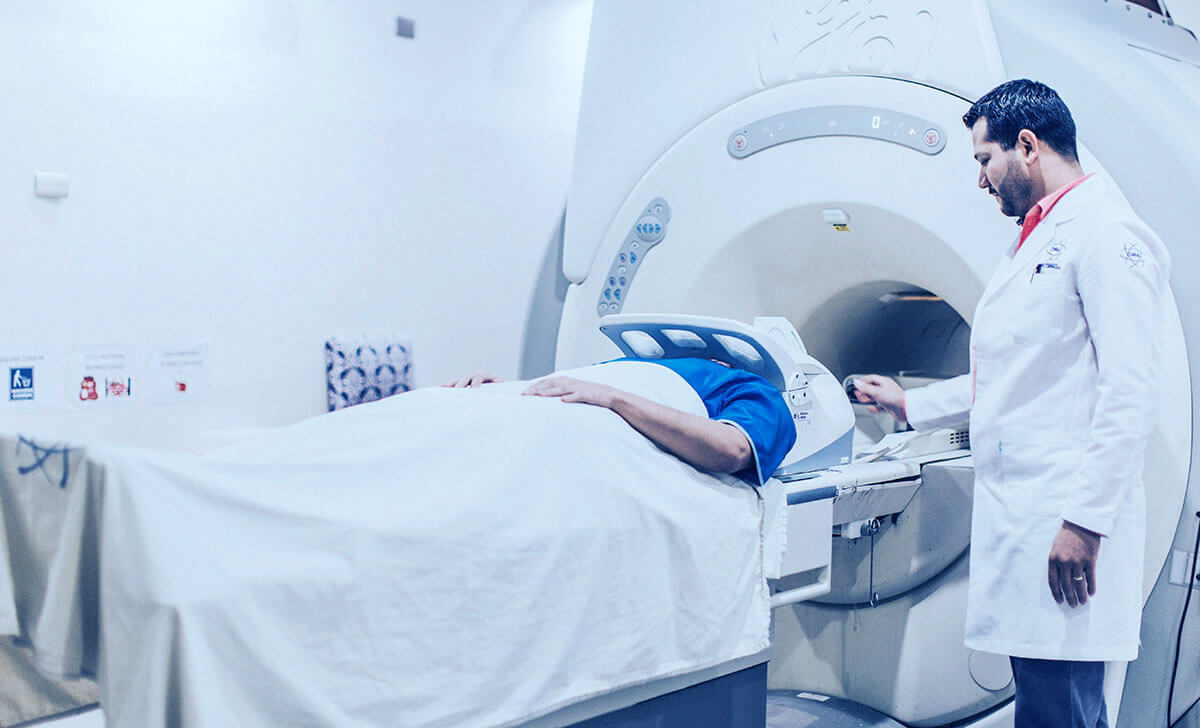
Magnetic resonance imaging is one of the imaging methods. This examination uses the effect of nuclear magnetic resonance. During MRI, the response of magnetic nuclei to exposure to a specific magnetic field is determined. The result is a fairly accurate 3D image.
With the help of MRI, it is possible to see the desired area of the body in different projections, obtain a contrast image that shows different tissues, and see processes in dynamics, for example, how blood, bile or urine moves. When screening for cancer, magnetic resonance imaging detects pathology at the earliest stages, accurately shows the size of the tumor, which tissues are affected and whether there are metastases.
Modern generation MRI machines make it possible to “see” tumors with sizes ranging from several millimeters; they have special systems for correcting image clarity, which provides high accuracy for cancer diagnosis.
MRI diagnostics is prescribed in order to select treatment for malignant tumors localized in all parts of the body. This can be the diagnosis of tumors of the brain and spinal cord, mediastinal organs, abdominal cavity, muscles, ligaments, etc.
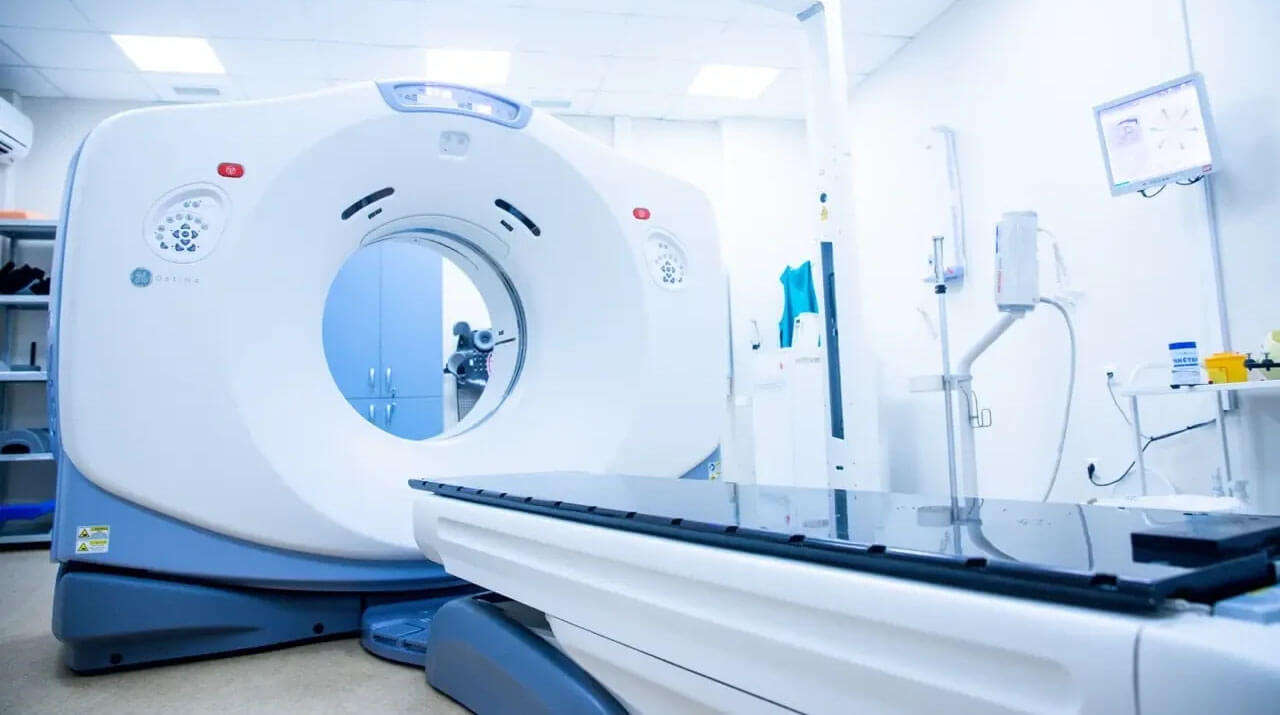
PET-CT is a diagnostic method that combines positron emission tomography and computed tomography. Today this technique is considered one of the leading in the diagnosis of cancer.
During this examination, the patient is first administered a special substance labeled with an isotope (for example, glucose or oxygen). It is absorbed by the tissues of the body, after which a scan is carried out, important information is obtained about the activity of different areas and thus it is possible to determine abnormal areas of the body.
Using positron emission tomography, the metabolic rate of various cells can be determined. This is a very important characteristic that identifies fragments of malignant tissue. PET-CT allows specialists to detect small tumors and detect cancer even at stages 0.
This examination method is used for many types of oncological pathologies. Most often it is prescribed, for example, in the diagnosis of prostate tumors, lymphomas, lung cancer, and head and neck tumors. PET-CT can also be used for breast cancer, skin cancer, and before treating intestinal tumors.
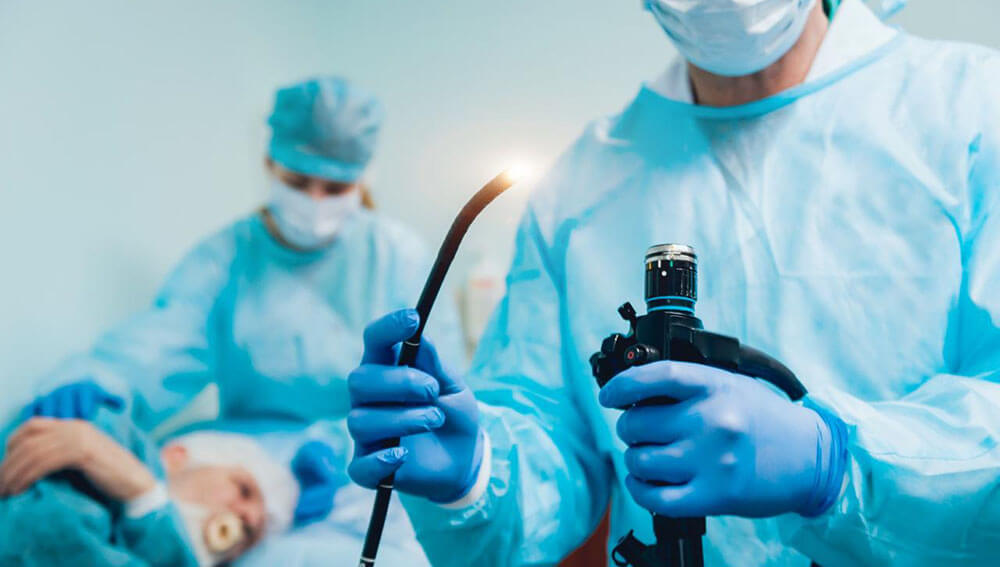
Endoscopic examination belongs to a separate diagnostic area, which has unique information content for a number of pathologies. Thus, for diseases of the abdominal cavity, pelvic organs and respiratory tract, intraluminal endoscopic diagnosis is considered the most objective method of assessing the situation. During the procedure, a special device is inserted into the lumen of the organ (esophagus, intestines, bronchi, etc.) – an endoscope equipped with a camera and a light source. With its help, the doctor can see the walls of the organ and, if necessary, take a tissue sample.
The uniqueness of endoscopic methods is that the doctor can carefully examine each fragment of the internal walls of organs, detect altered tissues, inflammation, erosion and identify neoplasms in the early stages. Modern endoscopes of the latest generation have high resolution, are equipped with special filters and the ability to magnify the image many times. This gives a “picture” with high clarity and contrast, which makes it possible to see even minor anomalies and small tumors.
Various endoscopic procedures are used to examine different organs. The most popular are esophagogastroduodenoscopy and colonoscopy. Esophagogastroduodenoscopy makes it possible to diagnose the condition of the upper gastrointestinal tract: esophagus, stomach, duodenum. Colonoscopy is used to diagnose the large intestine and is an important part of the examination in diagnosing colorectal cancer and selecting treatment for various types of intestinal tumors.
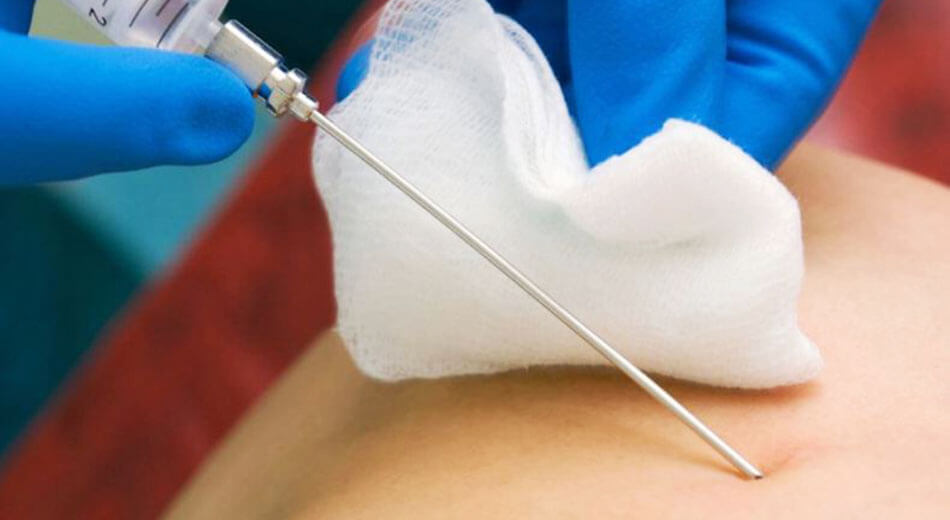
A biopsy is the removal of tumor tissue for further examination in a laboratory setting. Biopsy can be excisional or incisional. In the first case, all pathological tissue is taken for examination. This is usually possible after surgery to remove the tumor. An incisional biopsy is usually prescribed before surgery. Depending on the method of tissue collection, it can be pinch biopsy, trephine biopsy, loop biopsy, or fine needle biopsy.
Today, fine needle biopsy is often used. For maximum accuracy and when accessing hard-to-reach areas, stereotactic biopsy is used, the peculiarity of which is that the sampling procedure is carried out under ultrasound or CT control. This makes it possible to increase the accuracy of manipulations, take the desired section of tissue from a certain place and at the same time obtain a sufficient amount of tumor tissue sample.
A tumor biopsy clarifies the characteristics of the tumor and, based on this information, it is possible to make an accurate diagnosis. After the sample is received, histological and cytological examination of the samples is carried out. Also, material taken during a biopsy can be used for molecular genetic analysis.
Today, a biopsy is considered a necessary element in the diagnosis of cancer. Most often, it is this procedure and subsequent examination of the sample that allows a final diagnosis to be made. For example, a biopsy may be prescribed for prostate cancer, breast cancer, to diagnose rectal cancer, liver tumors, lung cancer and other tumors located in different organs.
MedTour will help you find a clinic where you can do MRI, PET-CT, colonoscopy, stereotactic biopsy and other instrumental diagnostics. If you suspect cancer, you can undergo examination in specialized centers and clinics that provide comprehensive services for the diagnosis and treatment of malignant diseases. In such medical institutions, the latest modifications of equipment are installed, which makes it possible to obtain the most accurate data. You will be able to make an early diagnosis of oncological diseases, undergo a check-up for cancer and detect the disease at the very initial stage, find out the nuances of the condition in the later stages of the development of the pathology, or track the dynamics of the condition and monitor the results of treatment.
The MedTour platform cooperates with leading clinics for the diagnosis and treatment of cancer. We will help you choose the best medical center for your needs and capabilities.
The level of diagnosis depends not only on the methods used and the quality of the equipment, but also on the qualifications of the doctor. We know where the best specialists in this or that area of diagnostics work, and who to contact for various oncological diseases. The MedTour medical coordinator will help you choose good doctors who have extensive experience in diagnosing cancer, deep knowledge of the clinical symptoms of various pathologies and a high level of technical skill.
Send us a request to receive a free consultation, during which you can find out all the information you need about doctors, medical centers, methods of diagnosing and treating cancer.
Please rate the work of MedTour
